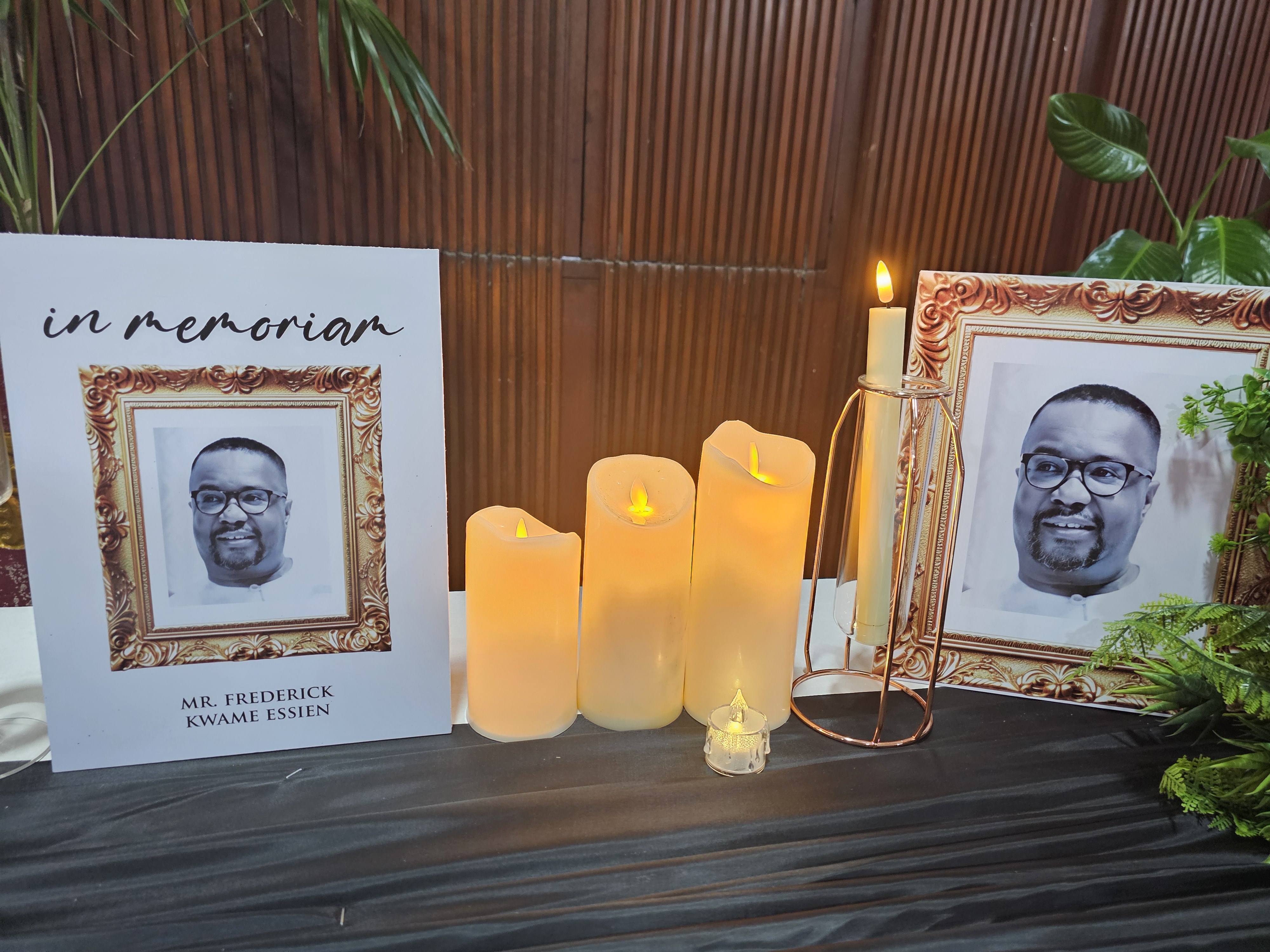The Kwame Nkrumah University of Science and Technology (KNUST), Kumasi, and the Ghana Association of University Administrators (GAUA) have honoured the life and legacy of Mr. Frederick Essien, affectionately known as Kwaboo, with a heartfelt Night of Tribute held at the Great Hall.
The event celebrated his outstanding leadership in transforming the Ghana Universities Staff Superannuation Scheme (GUSSS) and advancing pension management for university staff across Ghana.
Mr. Frederick Kwame Essien joined KNUST in November 1984 as a Messenger. Driven by ambition and commitment to service, he pursued further studies and, in September 1996, was appointed Junior Systems Analyst, marking his transition into the Senior Member category of the University. Through hard work and dedication, he rose through the ranks to become Systems Analyst in 2003 and Senior Systems Analyst in 2012.
Throughout his distinguished career, Mr. Essien was known for his professionalism, humility, and maturity in every role he held. He served with distinction as Head of Payroll at the Finance Office and later as the longest-serving Head of the Pension Secretariat at KNUST, where he led major reforms that modernised GUSSS operations.
Under his stewardship, the scheme experienced tremendous improvement in transparency, accountability, and efficiency. His financial acumen and strategic foresight helped shape policies that ensured the long-term sustainability of the pension scheme while enhancing the welfare and confidence of Senior Members.
Beyond KNUST, Mr. Essien became a pivotal figure in university pension administration nationwide. His deep understanding of the GUSSS concept and pension structures earned him recognition as a national consultant to GUSSS Management Boards and Councils across Ghana’s public universities.
Mr. Essien also played a crucial role in GAUA’s negotiations during the introduction of the Single Spine Salary Structure (SSSS) in 2012. As Financial Consultant to both KNUST and the national GAUA chapters, he provided evidence-based financial analysis before the National Labour Commission that secured a higher market premium for Senior Members than initially proposed by the Fair Wages and Salaries Commission. His advocacy balanced fairness and harmony within the university community, ensuring collegiality and unity among staff.

















